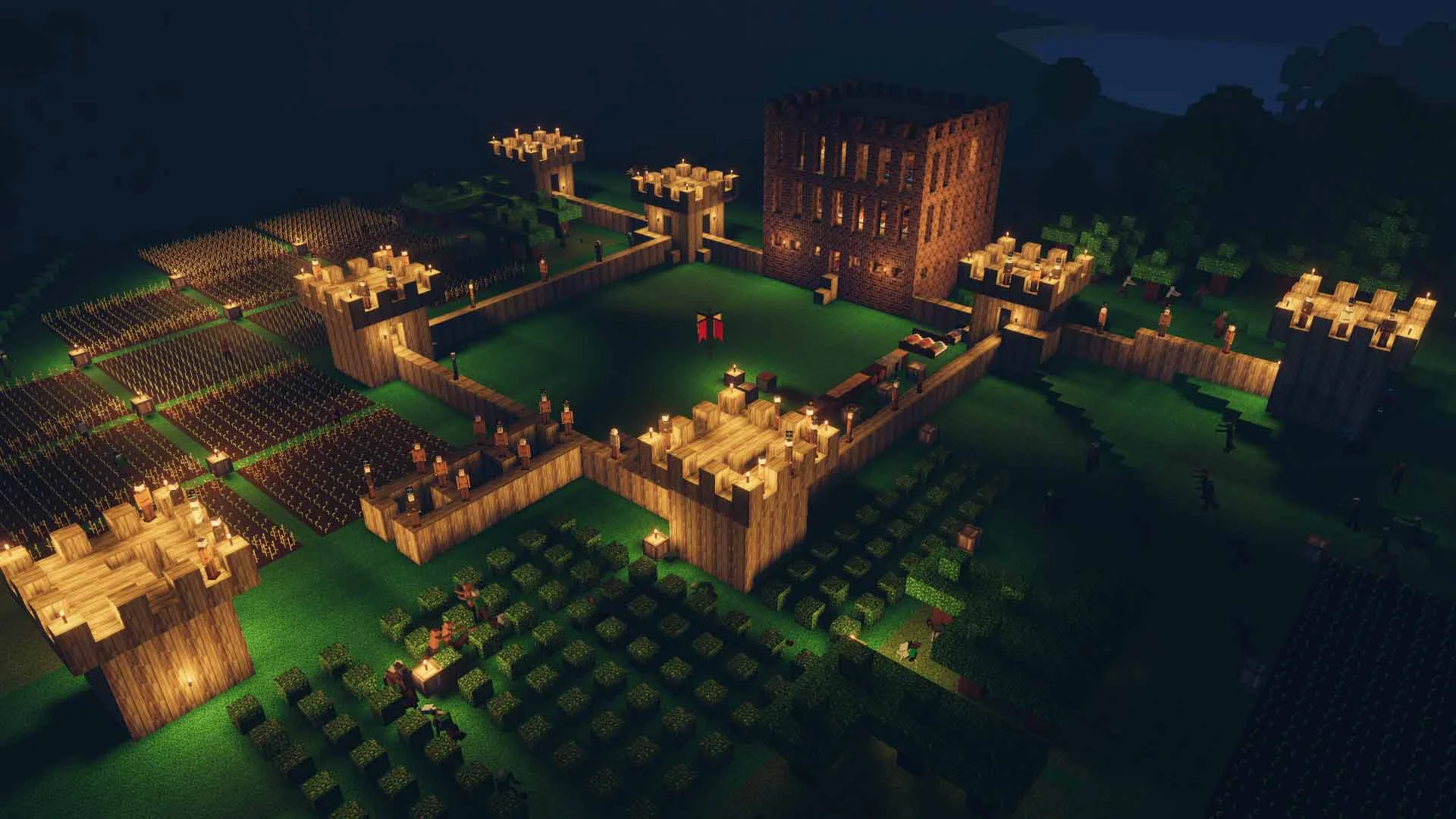Colony Survival - The Game
In Colony Survival, players are responsible for establishing and managing a thriving colony by overseeing production chains, assigning jobs to NPCs, and constructing defenses to protect against nightly invasions. The game uses a day-night cycle that determines NPC behavior and zombie attacks, making nighttime a critical period for survival. The voxel-based world of Colony Survival allows for creative construction and base-building, much like Minecraft. Players gather and place blocks to build walls, fortifications, farms, and houses for their colonists. However, the emphasis is not on individual survival but rather on creating a safe and efficient environment for the NPC workers.
One of the game’s main features is its colony management system, where players recruit colonists and assign them specific tasks. These tasks range from gathering resources (such as woodcutting, mining, and farming) to crafting essential items. Each colonist requires food and housing, which means players must carefully balance their workforce with available resources. New recruits are valuable but come with an added food cost, so expansion needs to be strategic. Efficient production chains are at the heart of a successful colony. To progress, players need a variety of materials, which require colonists to operate within a chain of production. For instance, bread production begins with farming wheat, then milling flour, and finally baking bread. As players expand their colonies, production chains become increasingly complex, requiring careful management to ensure there are no bottlenecks or resource shortages.
At night, zombie hordes emerge, aiming to infiltrate the colony and destroy its banner, which represents the colony’s heart. Players must construct effective defenses, such as walls and traps, and place guards strategically to fend off these threats. The intensity of zombie attacks scales with the colony’s size, adding a challenge to expansion and resource management. This cycle creates a compelling rhythm where daytime is for growth and preparation, while nighttime brings intense, defense-focused gameplay. As players expand their colony, they gain access to research options that unlock new technologies and capabilities. Research might lead to more efficient resource production, advanced defense mechanisms, or new job roles for colonists. The tech tree allows players to gradually advance their colony, increasing its complexity and capacity.
A well-optimized colony is essential for long-term survival. Place related workstations close together, and assign colonists to roles that complement each other. For instance, placing farms, mills, and bakeries in close proximity can streamline food production, ensuring that bread—a primary food source—is consistently available. Expanding the colony brings more resources and production capabilities but also increases the number of zombies. A larger colony will attract larger zombie hordes, so players need to upgrade their defenses and assign guards as they grow. Building fortified walls, utilizing archers and guards, and experimenting with traps can help mitigate threats and keep colonists safe. Not all research is equally valuable at every stage of the game. Prioritize upgrades that improve food production and defensive capabilities early on, and gradually work toward more advanced technologies that allow for faster expansion and enhanced production efficiency.
Efficient layout planning minimizes travel time for NPCs and maximizes productivity. Design your colony with clear pathways, keep critical production areas centralized, and avoid sprawling layouts that can slow down production chains. A well-planned colony is not only easier to manage but also easier to defend. Terrain can be a natural barrier to enemies. Placing your colony on elevated ground or next to a body of water can help funnel zombie attacks, making it easier to defend with fewer resources. Strategic use of the natural landscape can make a big difference in colony defense.
Colony Survival also offers a multiplayer mode, allowing players to collaborate on colony-building. Multiplayer introduces unique dynamics, as friends can assign themselves different responsibilities, such as managing defenses, resource gathering, or production. This cooperative aspect enhances the gameplay experience, as players can specialize in areas of interest while working together to build and defend a larger colony. The game sets itself apart from other sandbox and survival games by shifting the focus from individual survival to colony management. It combines the creativity of block-based building with the strategic depth of resource management and tower defense mechanics, creating a unique gameplay experience that appeals to both builders and strategists.
The game's dedicated player community continues to grow, offering feedback and ideas that contribute to its development. Pipliz has been responsive to this feedback, adding new features, balancing gameplay mechanics, and fixing bugs based on player input. This active involvement by both developers and the community bodes well for the game’s future, with potential updates and expansions that could add new resources, job types, or even new threats to the colony.
Colony Survival provides a refreshing twist on the survival and sandbox genres by focusing on colony management, resource production, and strategic defense. Its blend of creativity, strategy, and cooperative play makes it a unique and engaging experience for players who enjoy planning, building, and defending a thriving colony. For those looking for a game that combines the fun of Minecraft with the strategic depth of management simulators, Colony Survival offers a compelling world of endless possibilities.
